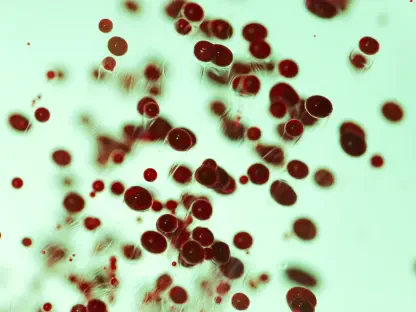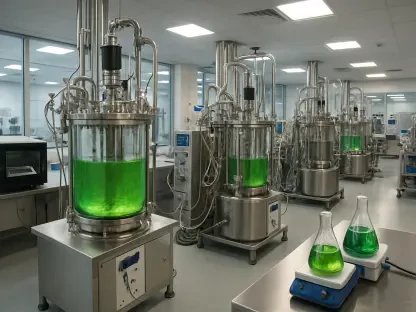What happens when a powerful voice from the White House casts doubt on everyday medical choices, leaving millions of parents and expectant mothers questioning the safety of common pain relievers and life-saving vaccines? A recent announcement by President Donald Trump, alongside Health and Human Services Secretary Robert F. Kennedy Jr., has ignited a firestorm of controversy by linking autism to Tylenol and vaccines, urging families to avoid these widely trusted interventions. This bold claim, made on a national stage, has not only puzzled families but also alarmed scientists who fear the ripple effects of such statements on public health. The stakes couldn’t be higher as misinformation threatens to unravel decades of medical progress.
The Weight of Words: A Presidential Claim That Shook Trust
The significance of this issue lies in its potential to shape real-world health decisions at a time when trust in science is already on shaky ground. When a president and a top health official publicly challenge the safety of something as commonplace as Tylenol or as critical as vaccines, the impact transcends mere rhetoric—it sows doubt among families desperate for clarity about autism’s causes. With autism diagnoses affecting 1 in 36 children according to the CDC, the urgency to separate fact from fiction is paramount. This story matters because it exposes how high-profile misinformation can jeopardize public health, potentially leading to untreated conditions or outbreaks of preventable diseases.
Behind the Announcement: A Message That Stunned Experts
On September 22, President Trump stood beside Robert F. Kennedy Jr. at a White House event, delivering a message that reverberated through the medical community. Their advice was stark: pregnant women and parents should avoid Tylenol and vaccines to prevent autism, citing anecdotal evidence of communities with “no autism” among those who skip such interventions. The shock wasn’t just in the content but in the delivery—made without input from CDC scientists, a glaring omission that raised red flags among researchers. Experts were left reeling, describing the moment as a dangerous oversimplification of a deeply complex condition.
The scientific community’s response was immediate and unequivocal. Ann Bauer, an epidemiologist whose research on Tylenol was referenced in a fact sheet tied to the announcement, expressed dismay, stating she felt “sick to my stomach” at the thought of pregnant women avoiding necessary medication due to misinterpretation of her work. Her studies, which suggest only a modest and inconclusive link between prolonged Tylenol use and autism, were never meant to justify blanket bans. This disconnect between policy pronouncements and scientific nuance set the stage for a broader clash over evidence and authority.
The Science Speaks: Debunking Myths About Autism’s Causes
Digging into the claims reveals a troubling gap between rhetoric and reality. The assertion that Tylenol avoidance during pregnancy prevents autism overlooks critical context—research shows untreated fevers pose a far greater risk to fetal development than the drug itself when used as directed. Medical guidelines emphasize using the lowest effective dose for the shortest time, a balanced approach ignored in the sweeping White House directive. This misrepresentation risks real harm, as expectant mothers might forgo needed relief out of misplaced fear.
On vaccines, the narrative is even more disconnected from evidence. Countless peer-reviewed studies have debunked any link to autism, yet Trump and Kennedy leaned on discredited theories and personal stories over data. Vaccine expert Peter Hotez voiced frustration over the persistence of these myths, pointing to the genetic roots of autism as a primary factor, supported by extensive research. The danger here is clear: undermining confidence in immunizations could revive diseases like measles, which pose documented risks to child health far beyond any unproven claims.
Beyond specific claims, autism’s complexity gets lost in the noise. Scientists agree that the condition arises from a mix of genetic predispositions and environmental factors like air pollution, not single scapegoats like medications or shots. This oversimplification by political figures distracts from addressing proven risks, leaving families with more questions than answers. The focus on quick fixes ignores the need for comprehensive strategies to support autism communities through systemic change.
Voices of Concern: Scientists Fight Back Against Dangerous Advice
Researchers have not stayed silent in the face of these assertions. Helen Tager-Flusberg from Boston University highlighted the peril of discouraging Tylenol use, noting that untreated fevers could severely impact unborn babies, a risk far outweighing any speculative concerns about the drug. Her warning underscores a broader fear among experts: that fear-driven advice could lead to dire health consequences for vulnerable populations.
Equally alarming is the erosion of trust in public health institutions, a trend exacerbated by this controversy. Reports of slashed funding and staffing at federal health agencies, coupled with the exclusion of CDC experts from the announcement, signal a troubling shift toward politicized science. Anonymous CDC researchers have expressed concern over procedural irregularities, fearing retaliation for speaking out. This systemic marginalization of expertise threatens to undermine public confidence at a critical juncture.
The personal toll on scientists is palpable as well. Ann Bauer’s distress over the misuse of her Tylenol research reflects a deeper anxiety among academics about engaging with initiatives led by figures like Kennedy, whose history of promoting fringe theories casts a shadow over credibility. This reluctance to collaborate risks stalling progress on genuine autism research, as experts weigh the cost of association with discredited narratives against the need for policy influence.
Guiding Families: Cutting Through the Confusion for Safer Choices
Amid this storm of conflicting messages, how can families navigate health decisions with confidence? The first step is clear: consult trusted healthcare providers about Tylenol use during pregnancy, adhering to medical advice on minimal, necessary doses rather than succumbing to blanket warnings. Personalized guidance ensures safety without sacrificing needed care, grounding decisions in individual circumstances.
On vaccines, the evidence remains overwhelming—immunizations protect against deadly diseases with no proven link to autism. Parents are encouraged to lean on resources from credible bodies like the American Academy of Pediatrics, which offer fact-based reassurance over political soundbites. Staying informed through such sources helps counter fear with knowledge, empowering families to prioritize proven protections.
Beyond immediate choices, advocating for broader change is vital. Policies targeting established autism risk factors, such as reducing environmental pollutants, deserve attention over unproven culprits like medications. Families can push for these systemic solutions by engaging with community health initiatives, ensuring that resources and research focus on impactful, evidence-based interventions rather than divisive distractions.
Reflecting on a Path Forward
Looking back, the controversy sparked by the White House statements stood as a stark reminder of the power—and peril—of words from influential figures. The clash between political rhetoric and scientific consensus revealed deep vulnerabilities in public trust, as families grappled with fear and uncertainty over autism’s causes. Yet, it also illuminated the resilience of evidence-based voices that rose to challenge misinformation with clarity and urgency.
Moving ahead, the focus must shift to rebuilding confidence through transparent, science-driven dialogue. Strengthening federal health agencies with adequate funding and independence remains a critical step to ensure expertise guides policy. Equally important is the commitment to public education, equipping communities with tools to discern fact from fiction. By prioritizing these efforts, society can turn a moment of discord into a foundation for lasting progress in understanding and supporting autism.









